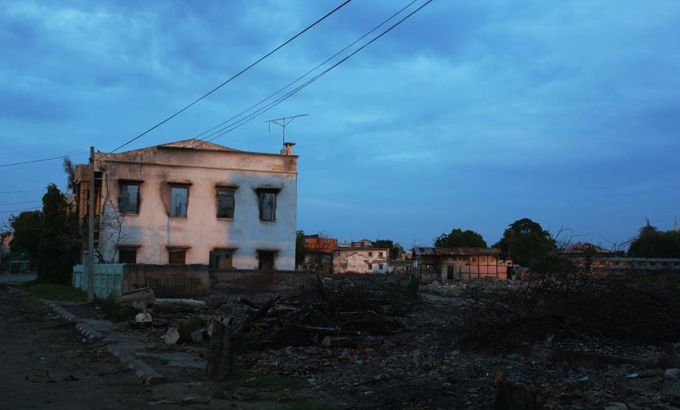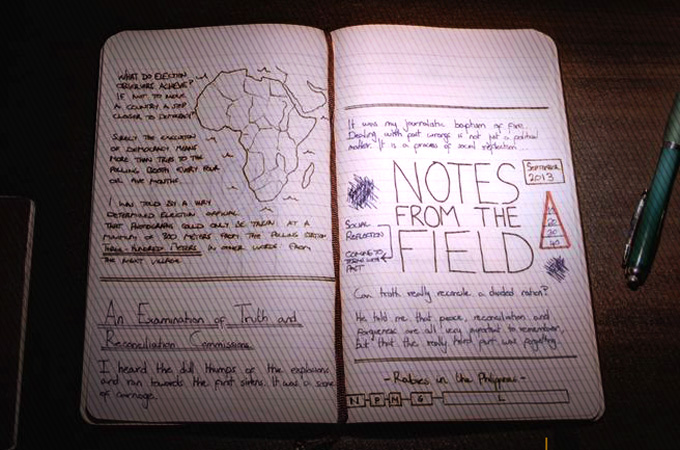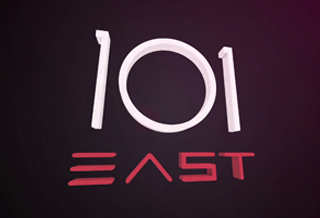
Freedom from Hate
101 East returns to Myanmar to investigate the religious hatred plaguing the country.
Religious and racial hatred simmers in the once repressed southeast Asian country of Myanmar.
Optimism for the country’s reforms is fast fading as tensions between majority Buddhist and minority Muslim communities have left over 250 people dead and displaced more than 140,000.
In the newly liberated media, free speech has quickly turned to hate speech, drowning out moderate voices. Some say powerful interests are igniting decades of suppressed prejudice in order to derail the country’s transition to democracy.
Unless leaders and moderate voices are willing to speak out, only the loudest and most extreme voices will be heard. Unless the country can come to embrace its diversity, and see it as a strength, peace and stability could remain elusive. Pro-democracy campaigner Aung San Suu Kyi famously wrote about freedom from fear, but can Myanmar now free itself from hate?
101 East returns to Myanmar to investigate whether dark schemes are at play, or if the country faces a more fundamental problem – a crisis of national identity.
Is freedom from hate possible in Myanmar as religious violence flares? Share your thoughts with us @AJ101East #MyanmarViolence
| Filmmaker’s view |
By Aela Callan
He spoke with eyes narrowed, as if trying to look inside us as he peered over the top of his newspaper. He was asking whether my companion and I were Muslims. Tired after hiking for two days through stunning mountains in Myanmar’s Shan State, we had finally arrived at this Buddhist monastery moments ahead of the monsoon rains. We were hoping to shelter here for the night.
“Ah, ah, I told him you are Christians…” stammered our guide.
“But I don’t practice any religion,” I insisted, peeved that I was even being asked.
 |
| For more from Aela Callan in Myanmar, download the latest issue of the Al Jazeera English digital magazine |
In Myanmar, “Where are you from?” is asked before your name. Your religion is then assumed, based on your answer. It is part of a system of deduction common across many cultures. If I say I am Australian, it must mean I am Christian.
Freedom from Hate tackles one of the most difficult topics I have explored during 10 months living in Myanmar and over four years reporting from here. My Western sensibilities have struggled to comprehend the breathtaking racism and blatant religious discrimination I witness on a daily basis.
The easiest example to point to is the use of the word ‘Kalar’, originally the Myanmar word for foreigner, now almost exclusively used to define dark-skinned Muslims. Often uttered with contempt, it is also used by community leaders and is rampant on Facebook since censorship has been lifted. I have been bewildered to hear friends who fought for democracy in Myanmar, quip over dinner conversation that Muslims are breeding incessantly and expanding their business empires with Islamic financing, as part of a plot to take over the country.
It is shocking stuff to people who were brought up to be politically correct or to subvert racism. But instead of dismissing these narratives, I wanted to understand why people emerging from decades of repression would turn on their own countrymen.
The best explanation I could come up with is a national identity crisis. What it means to be Myanmar has never been clearly defined and this is apparent in many ways.
Successive post-colonial governments, including the military, have pushed the idea that to be Myanmar you must be Buddhist. This excludes hundreds of diverse ethnic and religious groups who make up significant parts of the country. Yet no one knows how significant, because there has been no clear population data available in decades.
In the absence of clear figures defining the ethnic make-up of the country, irrational fears can not be dismissed with clear, logical facts. Some estimate the Muslim population to be five percent, some say 25 percent. In an open society that is aiming for democracy, demographics also matter to the political landscape. And that is another sore point, particularly in Rakhine State in the country’s west, where ethnic Rakhines believe the Rohingya minority are systematically trying to outbreed them.
On Myanmar’s national identity cards, Muslims are often identified as foreigners; Bengali, Pakistani or Indian, regardless of how long they or their ancestors have lived in Myanmar. Designations are often random, with race and religion listed together, creating the idea that they are one and the same. It is a highly confusing system that leads to people who have never been to India being listed as Indian, and members of the same family being deemed as being from different south Asian countries, because they are Muslim.
The notion that Muslims are the ‘other’ is easily absorbed, regardless of ethnicity, when promoted by the monkhood, which is revered as the country’s moral authority. In particular, the now infamous 969 group unashamedly distributes nationalistic propaganda. But if Myanmar’s problems could be solved by silencing a few monks, it would be easy. It took the stroke of a sub-editor’s pen to declare the group’s revered leader, Wirathu “The Face of Buddhist Terror” in Time magazine’s July issue. Unsurprisingly, this was seen by many as a direct attack, not just on Buddhism, but on Myanmar as a whole.
It is possible to argue the semantics of hate speech with Wirathu all day long. Whether or not he is guilty of it depends on if you regard his vilification of Muslims as an incitement to violence. But the key issue is that his ideology resonates. And it resonates so much because it is a narrative that most people in Myanmar are comfortable with. Indians, many of them Muslim, were imported by the British during colonial times and placed on a higher social tier, easily breeding resentment. Never mind that other Muslim groups existed in the country before the Anglo-Burmese wars.
Sadly, since the Time issue, a siege mentality has developed among Buddhists across Myanmar, who believe that reporting on this issue is part of a Muslim plot. Members of the local and international media are threatened, attacked on personal Facebook pages, have their websites hacked and their faces plastered across banners carried in protests. It is both sad and distressing to see free media attacked by people who for so long fought for a voice.
I was constantly videotaped while shooting Freedom from Hate, by both Buddhists and Muslims, out of fear of being misquoted or misunderstood. It is an understandable reaction, yet I cannot escape the irony that for years I was followed and documented by the authorities, only to be followed and documented by the general public in the newly free Myanmar.
During my time with the 969 group, one monk asked where I was from, then pointed out that Australia’s former prime minister had told Muslims they should accept the country’s laws or go home. Notwithstanding a few critical details he had confused, I accepted his point that other countries also express attitudes they can not be proud of when it comes to immigration. I told him that Australia’s strength lies in its diversity. The optimist in me would like to think that attitudes have come a long way since my parents’ and grandparents’ generation, and they are able to change in Myanmar as well.
Racism is ugly anywhere, but it seems particularly painful in Myanmar because it is a country that holds promise for the first time in decades. The foreign media is naturally responding to what it sees happening in the newly free country. After shocking religious riots, messages of hate from the mouths of monks or plastered over Facebook make great headlines. But, ultimately, Myanmar is a country where education levels average grade five, where reverence towards monks goes unquestioned, and where decades of misinformation have fed a culture that thrives on conspiracy theories like no other.
Myanmar’s people now face difficult questions. As the country hurries toward modernisation, can it turn perceived differences into strengths for the betterment of its future? Or will it allow hatred and fear to burden its ascent? I look forward to a day when the people of Myanmar will be able to look inward when they ask, “Where are you from?” and consider how diversity will help, not hinder an emerging democracy.
|
